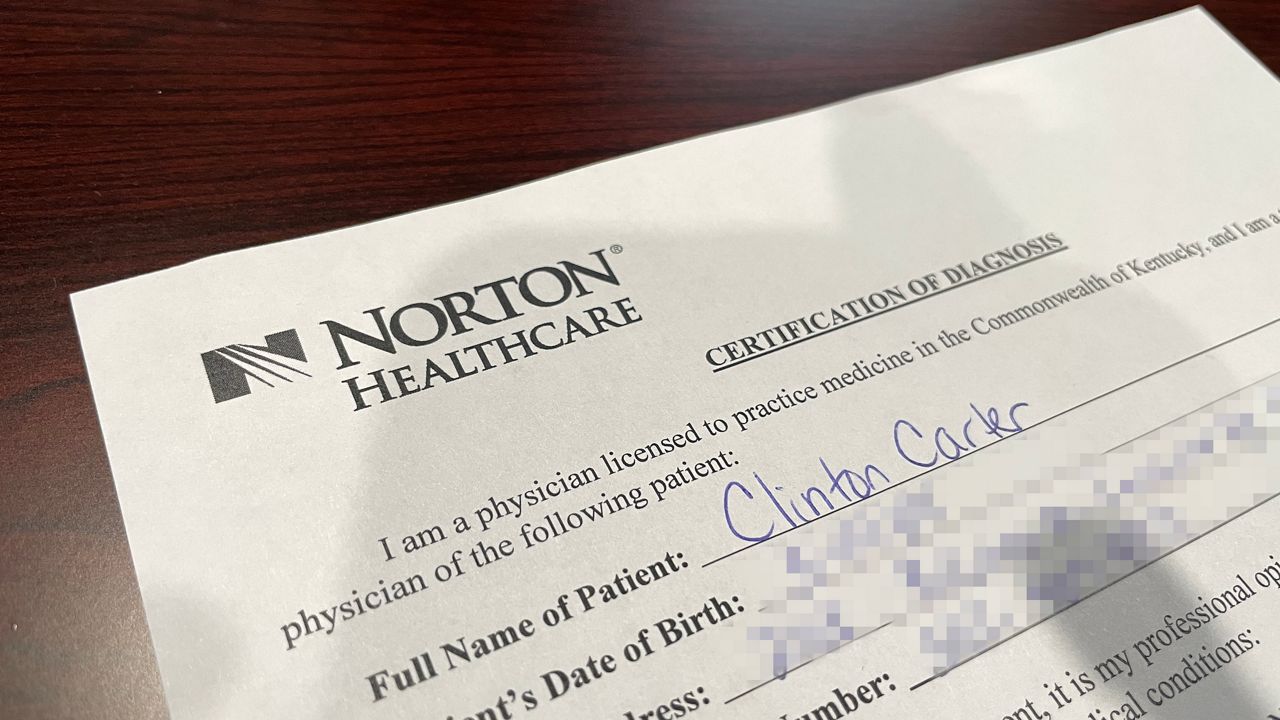LOUISVILLE, Ky. — CJ Carter stays busy. Between founding a realty group, serving as the Kentucky state director of Minorities for Medical Marijuana, and being a barber, it’s hard to describe him as anything but a hard worker.
But things changed in his life just a few years ago. In 2018, Carter was diagnosed with epilepsy.
“I had a seizure while I was driving and I ran into a tree at 45 miles an hour and I wasn’t wearing a seat belt,” Carter said.
Carter has been seizure free for nearly a year, thanks in part to cannabis. Carter said he’s also taking measures to reduce stress in his life, which he says can trigger his epilepsy, such as giving up alcohol, exercising, and eating better.
Recently, he’s taken advantage of Gov. Andy Beshear’s executive order, which allows Kentuckians with at least one of 21 medical conditions to possess marijuana, with several stipulations. Seizures are one approved condition.

Per the order, patients must carry a doctor’s note certifying their diagnosis. The medical cannabis also has to be legally purchased out of state, since it’s not sold in Kentucky.
Carter visited with his neurologist in January to get one of these notes and he describes the process as quick and easy.
“I would definitely hope that people would go and talk to their physicians about this, because when it comes cannabis, when it comes to medical marijuana, it affects everyone different,” Carter said.
Carter would like to see broader action taken by the legislature concerning medical marijuana.
“I want to use my story as an example for others. You know, all you simply have to do is go see your primary care physician and they should be able to assist you in attaining a certification,” Carter said.
Bogus “medical cards”
Since Beshear’s order took effect, some companies have offered “medical cards” to Kentucky residents, some costing hundreds of dollars. Kentucky NORML, an advocacy group for cannabis policy reform, warns these cards are useless.
“We’ve seen marketing that says ‘legal’ and that term should not be used at all because that’s where the misinformation starts, and that’s where people think, oh I pay this, I’m legal, I’m safe, that’s the quickest way to get in trouble is to think you’re safe,” Lauren Bratcher, deputy director of Kentucky NORML said.
Bratcher said in January, they’ve come across a handful of companies offering bogus medical cards.
“The more we looked into these places, the addresses would go to empty buildings, the phone numbers would be out of state, we would look up the doctor’s licenses and we couldn’t reach the actual doctor in a lot of cases,” Bratcher said. “There was just a lot of strange things going on with these doctors.”
Bratcher urges people to be cautious of these companies and says if what they’re offering sounds too good to be true, it’s probably a scam.
Under the executive order, patients must have a written certification from a doctor stating the patient has one of the medical conditions needed to possess cannabis. The order also says that note “Shall not constitute a prescription for medical cannabis.”
“It’s a letter that gets you out of trouble. It doesn’t protect you from getting into trouble,” Bratcher said.
The order allows a person to be pardoned for marijuana possession should they meet the required criteria. However, Bracher believes a case where someone was charged with marijuana possession, who quailed for a pardon, hasn’t happened yet.
“So it’s still just kind of a big experiment,” Bratcher said.
An experiment that will remain in place until the legislature can agree on what future medical marijuana holds in the state.
In the first week of the 2023 legislative session, six bills related to cannabis were introduced. So far, none have been assigned to a committee. While Beshear’s executive order has been in place for a month, some Republican lawmakers do not believe the Governor has the executive power to issue such an order.



